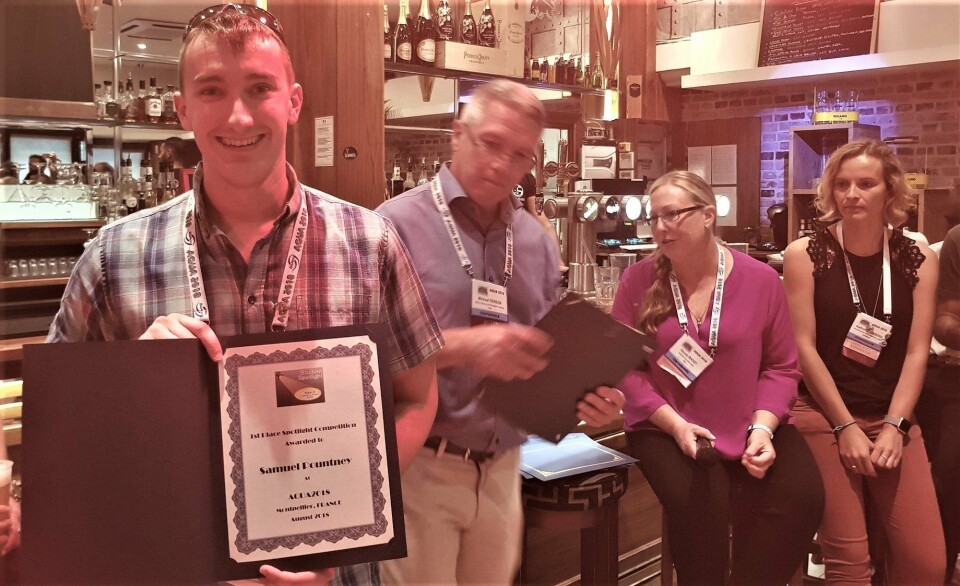
Lumpfish research puts student in the spotlight
A student working to optimise cleaner fish use in the Scottish salmon industry has earned a prestigious award and international exposure at the joint World Aquaculture Society and European Aquaculture Society Aqua 2018 conference held in Montpellier earlier this week.
Samuel Pountney, a second year PhD student at Stirling University’s Institute of Aquaculture, took first place in the Student Spotlight competition which gave him the opportunity to talk about his work at the event.
Temperature effects
Pountney is embedded within the IoA’s Scottish Aquaculture Innovation Centre co-funded project Securing a sustainable supply and the optimal deployment of lumpsucker for sea lice control in the Scottish salmon industry and was giving a presentation titled “Temperature effects of captive Lumpfish, Cyclopterus lumpus, broodstock spawning season and gamete quality”.
Based on the quality of the abstract submitted prior to the conference, he was selected by the World Aquaculture Society to be one of three students to present a three-minute flash presentation in the Student Spotlight competition during the opening plenary session of Aqua2018.
Full presentation
Following a subsequent vote open to all conference attendees, Pountney was awarded the top prize, and gave his full presentation as part of the “Hatchery Technologies & Broodstock Management” session on Tuesday.
The presentation summarised a study completed by Pountney investigating the impact of rearing temperature during the spawning season on the productivity and quality of captively-reared lumpfish broodstock.
This study was completed in collaboration with Dr Ingrid Lein of Norwegian research institute Nofima, with the experiment itself being supported by the EU Horizon 2020 trans-national access grant AquaExcel.
The IoA’s Dr Andrew Davie, who along with Professor Herve Migaud supervises Pountney’s work, said findings from the research have been used to amend hatchery rearing protocols in the UK with a view that it will improve captive lumpfish broodstock production from 2019 and beyond.
“It is our intention to publish the results from this study before the year end,” he added.























































